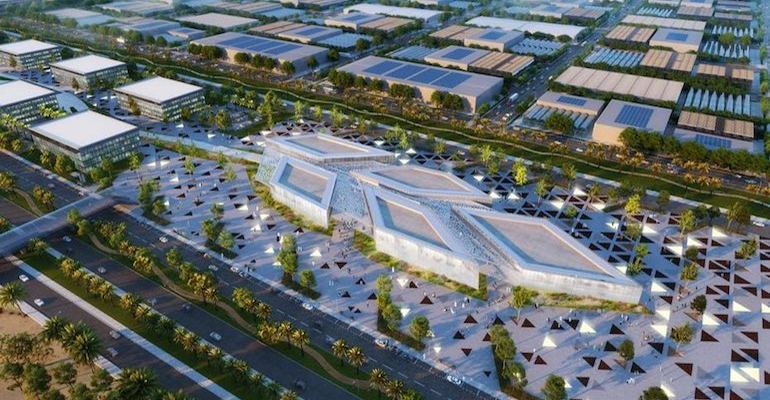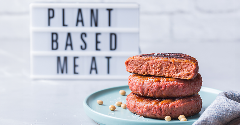News
UAE looks to become global food tech hub
18 May 2021The first phase of the United Arab Emirates’ new Food Tech Valley was launched on May 1, Gulf Business reported. This economic zone is focused on four main innovation clusters in the food tech space: agricultural technology, including bioengineering and automation; food innovation, which will function as an incubator space for startups; R&D facilities focused on drought-resistant crop cultivation and alternative protein production; and smart food logistics intended to make food storage, distribution and transportation more effective.
Through this project, the UAE is working to take a bite out of the sizeable and growing AgTech market, which is slated to grow to $42.52 billion by 2027, according to recent analysis by Emergen Research. Although the facilities that make up this Food Tech Valley project are dedicated to a variety of pursuits to increase the UAE’s foothold in the growing food tech sector, 60% of the project will be allocated to advanced farms, including indoor and vertical farms.

Without the assistance of innovative agricultural techniques, the UAE is heavily reliant on importation to feed its population. As a result of its limited natural ability to provide sustenance for its own citizenry, the UAE currently ranks 42 out of 113 on the Global Food Security Index. The index, which ranks food systems based on a country’s resource risks, how the country is adapting to those risks and the overall food insecurity of its population, cited “agricultural research and development” as a major deficiency in the UAE.
However, the emirates are aware of these areas for improvement. As part of the country’s National Food Security Strategy 2051 targets, the country has committed to ranking among the top 10 countries on the Global Food Security Index by 2021 by using technology to enhance local production, diversify food sources, and improve nutrition.
In the announcement of the new food technology hub, Sheikh Mohammed bin Rashid, Vice President and Ruler of Dubai said that the development of advanced agricultural technologies in this economic center is critical to the country achieving self-sufficiency.
The Minister of State for Food Security, Mariam Al Mheiri echoed this sentiment saying, “We seek to adopt and develop the latest methods for smart agriculture and food production, rationalize water use, accelerate basic food self-sufficiency, and share our successful experiences with countries around the world. This will help us achieve the Sustainable Development Goals and safeguard the future of forthcoming generations.”
The UAE is not alone in looking to food tech for a boost in investment and self-sufficiency. Singapore has recently been making headlines for its investments in technologies like cultured meat. Israel too has consistently been at the forefront of food tech and has made strides in alternative protein as well as incubators to bring R&D within its borders.
Gulf Business reported that the UAE currently has Dhs62bn ($16.9 billion) invested in the food and beverage space. With this newest announcement of institutional investment, the UAE has placed itself as a heavyweight in competition for the growing global interest in food tech. Now, with this latest commitment to growing its resources in the space, it will not be surprising to see more foreign and direct investments landing in a country where non-arable land has traditionally left it behind in terms of agricultural development.
Related news

Plant-based and processed: Avoiding the next big health debate
2 Feb 2024
Calls for clarity around ultra-processed food (UPFs) and ongoing debates on potential classification may bring the health credentials of plant-based food under the spotlight, which is why education is so necessary.
Read more